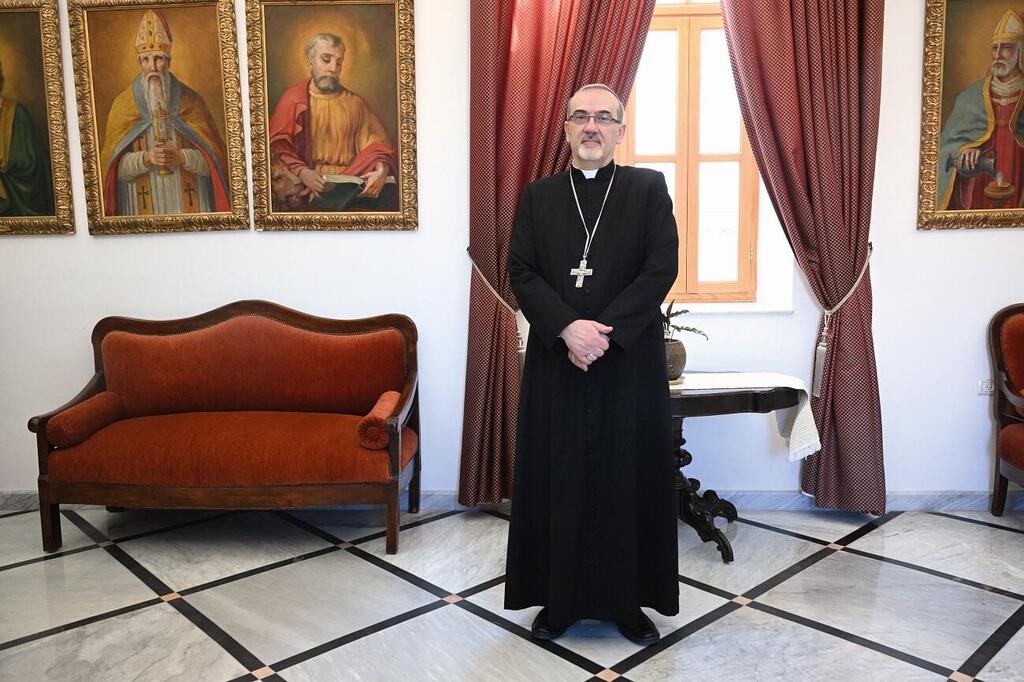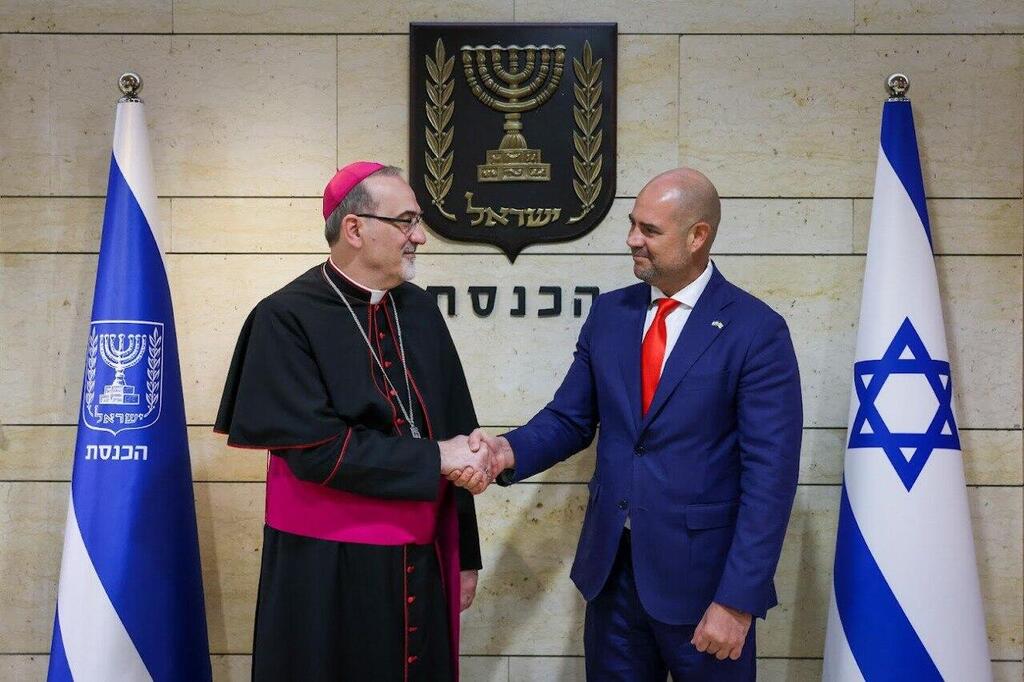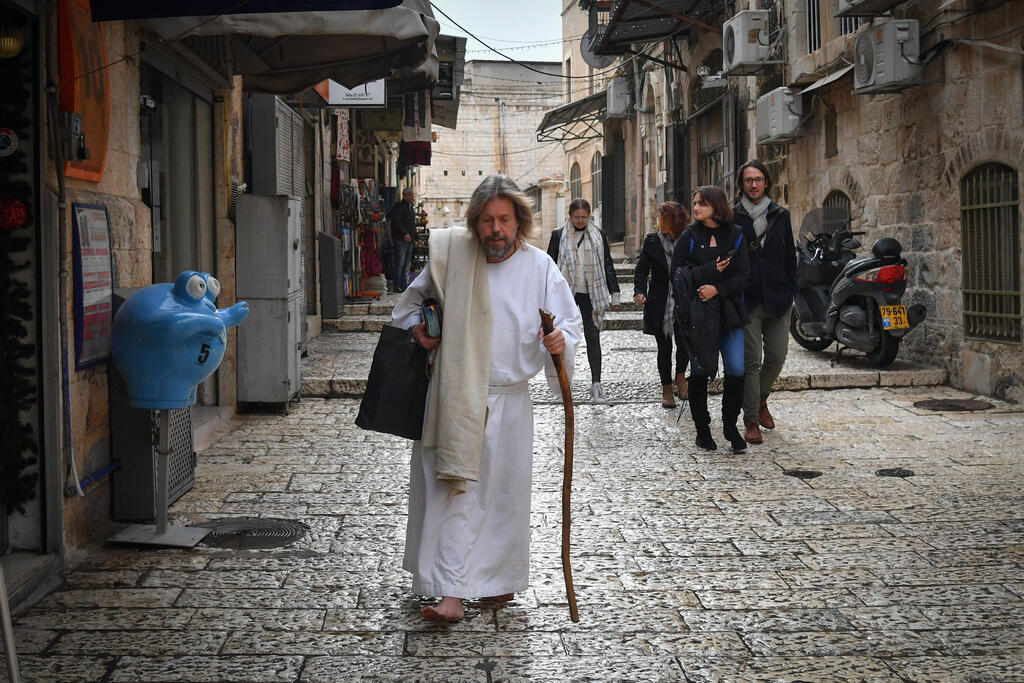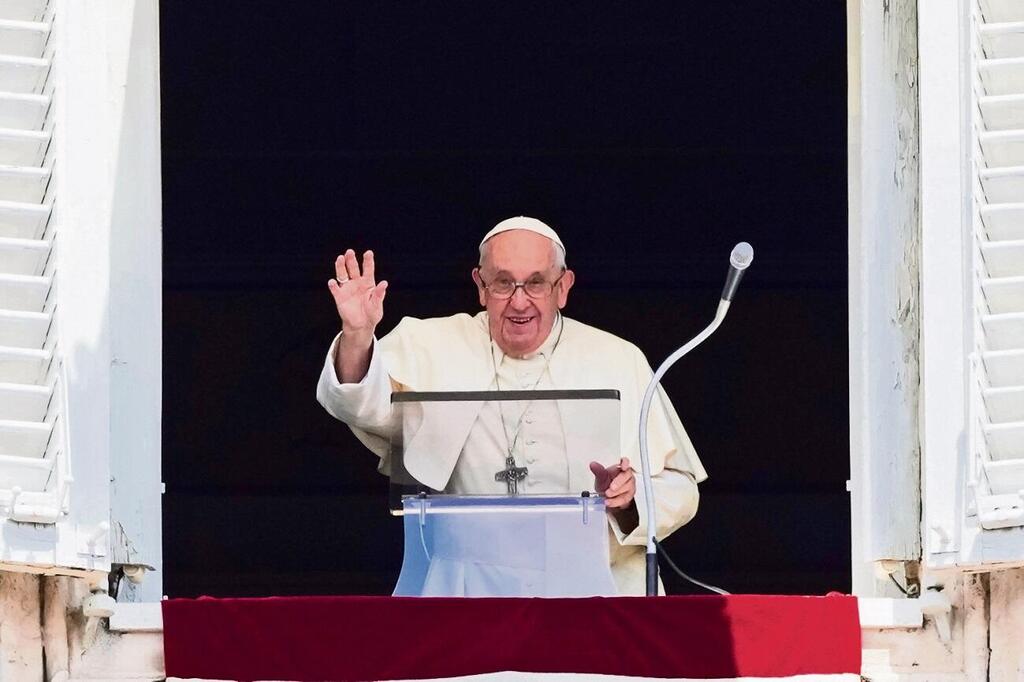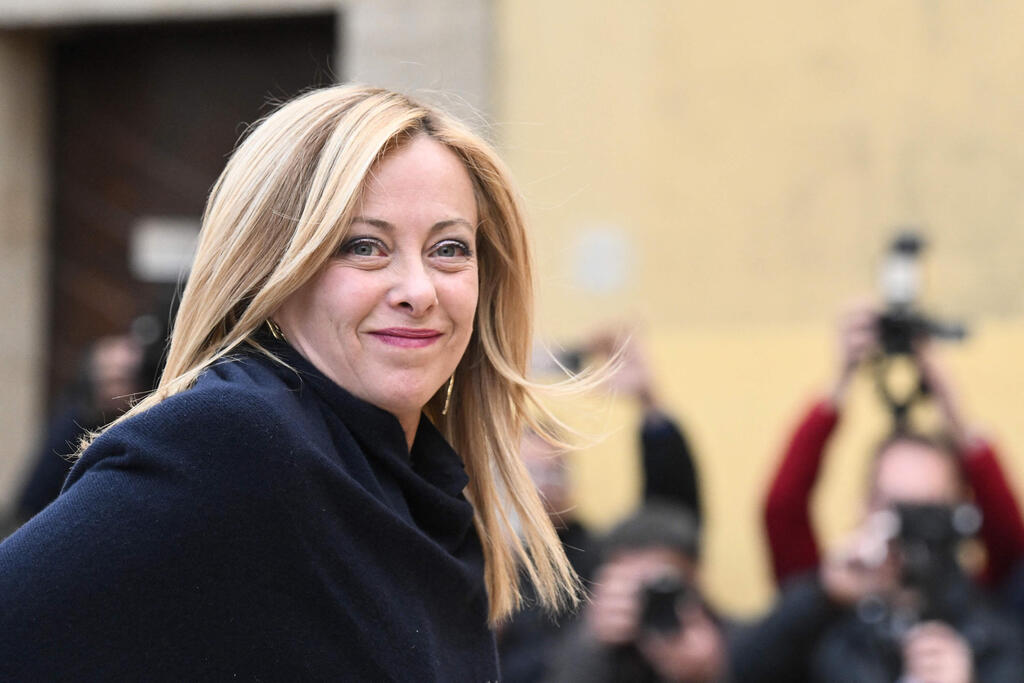Getting your Trinity Audio player ready...
Pierbattista Pizzaballa still remains composed. The Latin patriarch of Jerusalem, who was recently announced to become a cardinal, is still trying to process the news. "I am still in the surprise phase," he says in an interview. "It just fell like that. There's work to be done, and I need to focus on that. There's not much time to dwell on this decision. Gradually, I'll come to terms with it."
More stories:
Does the Pope usually let someone know before making the appointment public?
"Previous Popes usually did. This Pope, however, did not."
What will you do after the official appointment?
"I will continue to do what I've been doing until now. I don't know anything else at the moment."
Is there anything important you want to advance as cardinal?
"I haven't thought about it yet. I don't know. I think I will continue doing what I've been doing until now, with my feet on the ground."
Do you dream of becoming pope?
“As far from it as possible. Definitely not."
The pope is concerned about the situation
Earlier this month, the Vatican announced the appointment of 21 new cardinals, one of them would be none other than Italian-born Pierbattista Pizzaballa, 58, the Latin patriarch of Jerusalem. For the first time in history, a cardinal will be based in Jerusalem, the capital of Israel.
The appointment has several possible explanations, including the increasing violence against Christians in Israel. Just two weeks ago, three men were arrested for spitting at a Christian priest in Jerusalem.
The choice might also reflect the pope's desire to enhance his involvement in the region and support the peace process with the Palestinians. The selected cardinal will also take part in the election of the next pope. Therefore, the selection of a cardinal can signal the pope's preference for someone who will promote his ideology in choosing the Holy See's successor.
Why do you think the pope chose you?
"I don't think it's just a personal matter. He has known me for years, of course, but it's also because of Jerusalem, because of the Holy Land. The pope has always been close to all the 'sensitive' places in the world, and certainly, Jerusalem is a highly sensitive place."
Does it also have something to do with the situation in Israel?
"That's what people here think. I believe the pope is beyond that - he receives reports from all over the world every day, so he looks at what's happening here from a more distant, less emotional perspective. But yes, of course, he is very concerned about what's happening here, and it may have influenced the decision. However, I don't think it's the main motive."
Does the political situation in Israel affect the church?
"The church is a part of life here. What happens in the country impacts the lives of our communities and the church in general. It's evident. The political situation is very problematic, very complex, and also, my community is both in Israel and in the territories. The lack of dialogue between the sides creates uncertainty about the future. All of this has an impact."
In April, you told the AFP news agency that the government is responsible for the rise in violence against the Christian communities in Jerusalem.
"That's not exactly what I said. I mentioned that with the new government, there is a new wave and frequency of these incidents, which are more frequent. That's what I said, and I believe it. There are those who commit such acts and feel supported by some people in the government. I don't think the government is always thinking about us; we are not their priority. I'm sure they are not constantly thinking about us."
Do you think there are specific people in the government that you can point to and say, ‘they are responsible?’
He laughs and responds, "Again, I don't think they are directly responsible. I don't think Smotrich or Ben-Gvir are thinking about us or giving orders like 'do this to the Christians.' There are no such orders. I believe that the world these people come from now feels they have more freedom or impunity, and they act on it. They feel freer."
Charismatic clergymen
Pizzaballa was born in the town of Cologno al Serio in northern Italy to Pietro and Maria Maddalena Tadini. There he was first exposed to the Catholic Church, and it was there that he made the decision to join its ranks. At the age of 19, after completing his studies, he entered the monastery.
How did you arrive at this decision? Devoting your life to God is a significant commitment.
"Well, it came from my childhood. I come from a small village, lots of farms, in northern Italy. Being religious was natural for me. The clergymen in my village were very charismatic, and I wanted to be like them."
How did your family react?
"In the beginning, they said I was too young, 'wait a bit,' they said, and then they got used to the idea."
What do they say now that you are a cardinal?
"I'm not sure. There isn't much of my family left. I haven't had a chance to talk to them yet. But I think they will be happy."
In the late '90s, you studied in Israel and obtained a master’s in biblical studies, mastering the Hebrew language. How does it feel for you to speak the language of Jesus and walk through those same alleys? Does it move you?
"Do you think Jesus spoke Hebrew or Aramaic? He knew Hebrew, but I think they spoke Aramaic. At first, yes, it was moving. Now I have gotten used to it."
Pizzaballa arrived in Israel in 1990. After over 30 years here, he feels completely at home. "99 percent of society here accepts me as a Christian," he says. "There are always extremists here and there, some people understand more, some less, different sensitivities, it's natural."
As part of his role, he is in contact with central rabbinical figures. "There is a committee that deals with dialogue between the Chief Rabbinate and the Catholic Church, and I am part of that committee. I meet them every few months, and there are also relationships with other rabbis - Conservative, Reform, Orthodox. We also have Catholics, Orthodox - it's normal."
And do you think this forum helps?
"It depends on your perspective. If you want to change the world, then of course you'll feel that everything we do is in vain. Nothing, seemingly, changes. But on the other hand, we must do something. Our world here in the country is a world that's becoming more closed-off. Each group tends to close itself off. Jews, on one side, religious Jews, secular Jews, Arabs, non-Arabs, Christians, Muslims - everything that can help with dialogue needs to be done. Our call for the people of the land is to be united in diversity. And that has always been the virtue of life here, of society. It has never been a monolithic society."
And when you come to this forum and ask the chief rabbis, for example, to issue a call to stop the attacks on our priests in Jerusalem, are they responsive?
"Yes. [Chief Rabbi Shlomo] Amar issued a very sharp letter against it. Other rabbis did it too. There are those who didn't, of course, but I think in any case, dialog, meeting and getting to know each other - it makes this reality easier."
Earlier this month, there was a report of a Christian priest being spat on. How do you manage to live with it?
The patriarch chuckles and says, "When I first came to the country 33 years ago, that was the first thing they told me, 'If someone spits on you, don't react, it happens here.' So, it's not a new phenomenon; it has been happening for a long time. But as you mentioned, it's become more frequent now. It used to be sporadic, and now it's less sporadic."
Jews spitting at a church gate in Jerusalem
How often does it happen? Every day?
It's quite common. I can't say every day, there might be a week with ten incidents, and another week with none, but it's very common.
So, there's hardly a month without such an incident.
Yes. What surprises me is that people have become more aware now, as if it's a new thing. There's more attention to the problem. Even within the police, I've seen a willingness to discuss and understand where it comes from.
Do you feel the police care?
Nowadays, yes. In the past, less so. Also, because we didn't cause any commotion. But the recent wave of incidents has raised more awareness among us and a sense that something must be done. There are rabbis who claim that this kind of behavior is justified because Christianity is considered idolatry, but I think most of these actions come from extremists.
Do you feel it can reach you personally? Is there a danger to your life?
"Danger to my life? No... I don't think so. I don't want to think about it. We are not afraid. We are not so concerned about the safety of monks and nuns and communities, but about relationships. We must address it, and it's not that it doesn't work, we talk to the police, we talk to the rabbis. It's not just about talking to the police; we need to understand where it comes from, who teaches them to do it.
The relations between Judaism and Christianity, especially Catholicism, are complex relations, also because of our history. We must be aware of that. But we must not fear. The church in this land is part of Israeli society. The country is a country with a variety of colors, and we are part of it. Don't think that we are just outsiders."
The situation in the Middle East
When Pope Francis announced his appointment of Pizzaballa, he also spoke about the complex situation of Christians in the Middle East. Pizzaballa himself is concerned about the issue. "In recent years, we have witnessed bloody wars in Iraq, in Syria; the situation in Lebanon is very complex," he says. "The situation of the authorities is also unstable. It affects all of us, especially the more vulnerable population, the minorities. In Syria and Iraq, we lost two-thirds of Christians in recent years."
Emigration? Are they leaving?
"Yes. In Jordan, there are three million refugees—most of them are Muslims, some are Christians. The Christians are not a separate entity; they are part of the population. What happens to Muslims in Iraq also happens to Christians. We talk and do everything possible, but the situation is very fragile and unstable. As long as there is no clear political perspective, it's clear that there won't be a solution even for Christians."
Are you in contact with people from the Palestinian Authority about this issue?
"Yes. They do what they can, but their freedom is very limited due to the occupation, due to the security situation."
Does it have anything to do with Israel's control over the West Bank in your opinion?
"Well, it's clear there is a connection," he laughs. "Israel holds the keys."
And what is it not doing that it should?
"There are five million Palestinians there. We cannot ignore their lives. As long as they don't have a clear future and a clear political perspective of their own, it's clear that their situation won't change."
Would it be better in an independent Palestinian state?
"If the situation of the Palestinians is better, the situation of Christians will also be better. It's related."
Do you feel threatened by radical Islam in the Middle East, or is that not part of the discourse?
"Radical Islam is very strong in Iraq and Syria, with the Islamic State, and it has caused enormous damage, of course. Here, it's less of a concern because the political situation is very different. The enemy here is Israelis."
By ‘the enemy,’ you mean the people responsible for the attacks?
"Yes."
6 View gallery
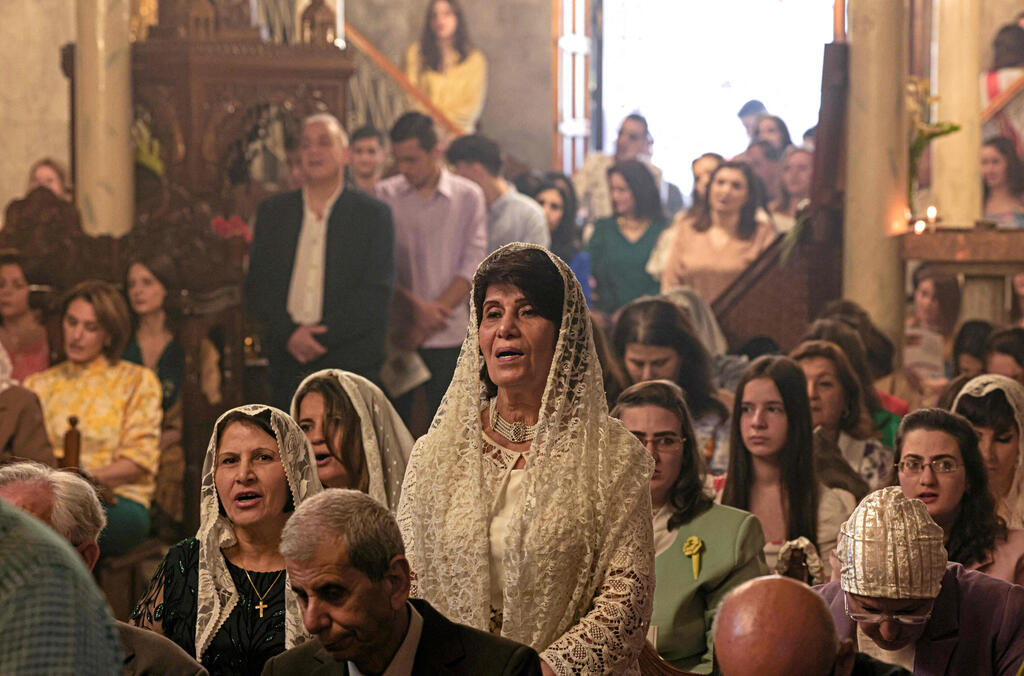

Palestinian Orthodox attend the Palm Sunday mass at a church in Gaza City on April 9, 2023
(Photo: AFP)
Are there currently Christians in the Gaza Strip? How do they live under Hamas rule?
"Yes, there are a little less than a thousand. Hamas is very strong. But the overall situation in terms of the economy and daily life is very fragile. Not good."
And in Jordan? Since you’ve already mentioned it.
"In Jordan, there is a king, and he maintains the relations between Christians and Muslims."
Children of God
The choice of Patriarch Pizzaballa as a cardinal has reignited old hopes of seeing Pope Francis visit Israel again.
Do you think we will see the pope in the Holy Land soon?
"He has already been here. I don't think he will return. His health condition is not very good. A visit to the Holy Land is complicated, both practically and physically."
Pope Francis took office in 2013 and brought about a revolution in the Catholic Church. This is evident from the name he chose for himself - Francis, after the renowned friar Francis of Assisi, known for his dedication to helping the weak and the poor - a figure never before chosen as the pope's namesake.
Pizzaballa joined the Franciscan Order when he entered the church. Besides Pope Francis' compassion for the poor and other marginalized groups, he is also known for having a more accepting attitude toward the LGBTQ+ community, with statements like, "If someone is gay and seeks the Lord with goodwill, who am I to judge them?" or "Homosexuals have a right to be a part of a family, they are children of God. We must have a civil union law."
What do you think about Pope Francis' positions regarding the LGBTQ+ community?
"Well, he is the pope, the head of the Catholic Church. He hasn't changed the Catholic doctrine. He has changed the church's approach toward the external or secular world. He constantly says that we need to tear down the walls between the church and the world as it is, and that the church should be more supportive of the entire world, all communities and everything that exists. Because now, the secular world mostly feels that the church is a closed-off world that doesn't want to be together."
Do you support his approach?
"Yes. He says, in short, that we cannot always say 'no-no-no-no.' He is also aware that we cannot say 'yes-yes-yes-yes' to everything, as if everything is acceptable. But we need to find a balance between a supportive and encouraging approach on one hand, and remaining faithful to the scriptures and tradition on the other. I agree with him that we cannot just keep saying 'no’."
Let's say a family of two women or two men and their children come to the church for Mass – would you welcome them?
"Of course. The church is open to everyone. Are they coming to pray? We can't stop them. On the other hand, we also need to acknowledge that there is a difference between them and a regular family. It's evident. They don't have the same status, the same standing. I wouldn't turn them away, of course."
One person who has repeatedly attacked the LGBTQ+ community in the past year is the leader of Patriarch Pizzaballa’s native country – Giorgia Meloni. The prime minister of Italy is known for her support of the Catholic Church. "I am Giorgia, I am a woman, I am a mother... I am Christian," is one of her famous quotes.
What do you think about the current government in the country where you grew up?
"I don't know. I left Italy over thirty years ago. I am currently a foreign resident in Italy. I see that the trend throughout Europe is shifting rightward. What might be common to all is the fear of the new, the fear of the rapid changes happening in society. The right may give the impression of 'preserving' something in a certain sense. I don't know; I don't live there."
Apart from the LGBTQ+ issue, another matter that has greatly occupied the Catholic Church in recent years is the issue of sexual abuse within the church. A 2021 report claimed that 300,000 people fell victim in France over the past 70 years. The pope himself addressed this and acknowledged the victims and the "sins of the past."
Do you know anything about sexual abuse in the church in Israel?
"There have been a few isolated cases; we have dealt with them when they occurred. But so far, at least, it has not been a widespread phenomenon."
Do you think the church is doing enough?
"It is doing a lot. It comes with awareness. When you don't have an awareness that there is a problem, you certainly won't address it. Now, with all the scandals and controversies in the United States, Europe and everything that happened with the previous and current popes – there is awareness, and there is also sensitivity to the matter. The church is doing everything it can, but I am sure it is never enough. However, we must do everything possible. In our case, we need to go through our training centers and also within communities – it's not just about the training of religious priests. It's also about the public, in families. It's our direct responsibility, what happens in the various families and communities. These sensitivities and awareness need to be present throughout the church and beyond."
What mechanisms have you created here to deal with it?
"We have two mechanisms or channels: training and handling cases. We need to train all our people in schools, in hospitals – what to do and what not to do, how to act. We need to train immediately. It's not just about sexual violence – there are also other forms of violence, including verbal. Also, the respect between supervisors and their employees, and so on. And there is also a service – if something happens, how to handle it, of course."



